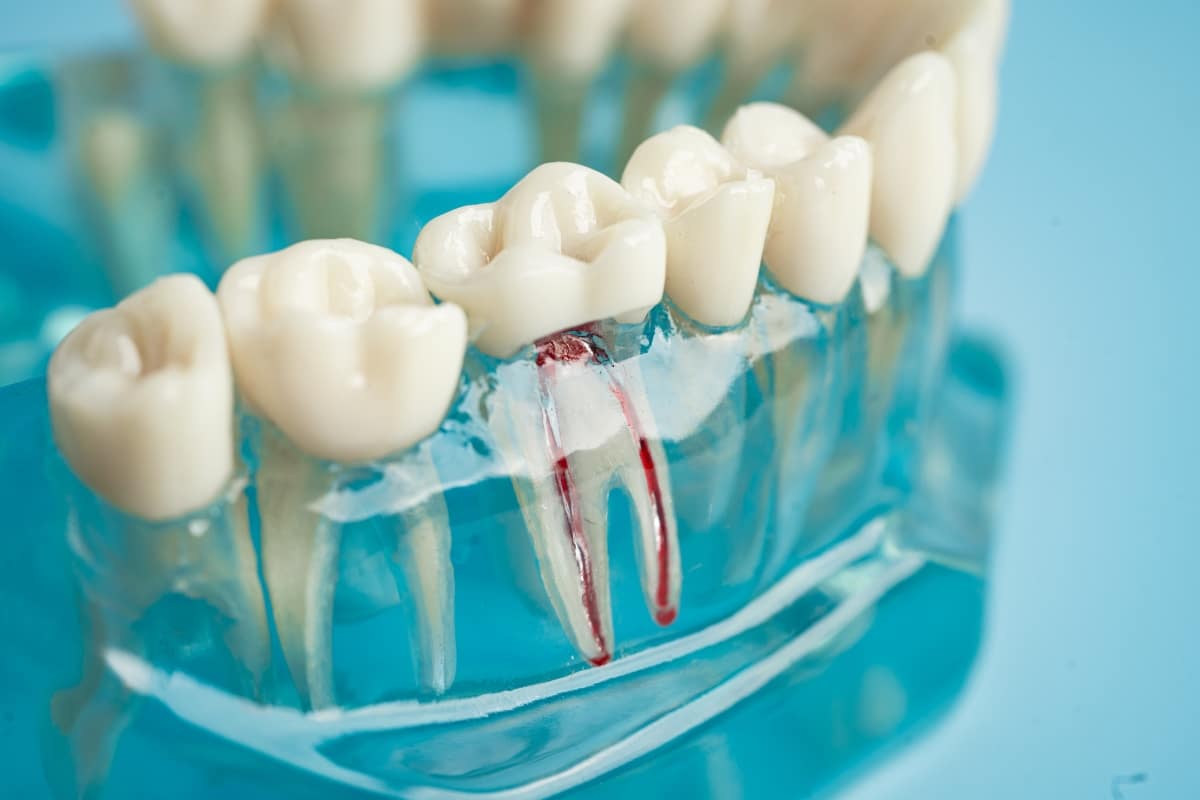Same-day treatments are available.
Managing Major Pain After Dental Veneers: Causes, Tips & Relief

Dental veneers are a popular cosmetic dental treatment used to enhance the appearance of teeth by covering imperfections like stains, chips, or gaps with thin shells bonded to the front surface of the teeth. While veneers are generally well-tolerated, some individuals may experience major pain following the procedure. This guide explores the potential causes of post-veneer pain, effective pain management strategies, and preventive measures for a smooth recovery.
Understanding Dental Veneers
Before diving into pain management, it’s essential to understand what dental veneers are and how they are applied:
What Are Dental Veneers?
Dental veneers are custom-made shells, typically made of porcelain or composite resin, designed to cover the front surface of teeth to improve their appearance. They are bonded to the teeth using dental cement, providing a natural-looking smile.
Process:
- Consultation: Your dentist evaluates your oral health, discusses your cosmetic goals, and determines if veneers are suitable for you.
- Preparation: A small amount of enamel is removed from the teeth to create space for the veneers and ensure a proper fit.
- Impression: An impression of your teeth is taken and sent to a dental lab where custom veneers are fabricated to match the shape and color of your natural teeth.
- Bonding: Once the veneers are ready, your dentist bonds them to the teeth using special dental cement and cures them with a light beam to secure them in place.

Potential Causes of Major Pain After Getting Dental Veneers
While discomfort after getting dental veneers is normal, severe or persistent pain may indicate underlying issues. Common causes include:
1. Tooth Sensitivity:
- Enamel Removal: The process of removing a small amount of enamel from the teeth can temporarily increase tooth sensitivity, especially to hot or cold temperatures.
2. Bonding Issues:
- Adhesive Reaction: Some individuals may experience sensitivity or pain due to a reaction to the dental adhesive used during the bonding process.
3. Fit and Alignment Problems:
- Improper Fit: If the veneers are not properly fitted or aligned with the natural teeth, they can create pressure points, leading to discomfort or pain.
4. Gum Irritation:
- Gingival Adjustment: The placement or adjustment of veneers can irritate the gums temporarily, causing soreness or inflammation.
5. Nerve Irritation:
- Dental Nerve Sensitivity: In rare cases, the preparation process or placement of veneers can irritate the dental nerves, resulting in persistent pain.
Immediate Steps to Manage Pain After Getting Dental Veneers
If you experience major pain after getting dental veneers, taking prompt action can alleviate discomfort and prevent further complications. Here’s what you can do:
1. Contact Your Dentist:
- Consultation: Reach out to your dentist immediately to explain your symptoms. They can assess the situation, identify the cause of the pain, and recommend appropriate treatment.
2. Pain Relief Medication:
- Over-the-counter Options: Take over-the-counter pain relievers such as ibuprofen or acetaminophen to reduce pain and inflammation. Follow the dosage instructions provided on the packaging.
3. Cold Compress:
- Reducing Swelling: Apply a cold compress to the outside of your cheek near the affected area. This can help numb the pain receptors and reduce swelling. Use the compress for 15-20 minutes at a time, with breaks in between.
4. Saltwater Rinse:
- Oral Hygiene: Rinse your mouth gently with warm saltwater. This can help soothe irritated gums and promote healing without disturbing the veneers. Mix a teaspoon of salt into a glass of warm water and swish it around your mouth before spitting it out.
5. Soft Diet:
- Eating Comfortably: Stick to soft foods that require minimal chewing to avoid putting additional pressure on the teeth with veneers. Opt for soups, yogurt, mashed potatoes, and smoothies until the pain subsides.
Long-Term Solutions and Treatment Options
For persistent or severe pain, your dentist may recommend specific treatments to address the underlying cause:
1. Veneer Adjustment:
- Refitting: If the pain is due to an improper fit or alignment of the veneers, your dentist may need to adjust or reshape them to alleviate discomfort and ensure a proper bite.
2. Desensitizing Treatments:
- Specialized Products: Your dentist may apply desensitizing agents or recommend toothpaste formulated for sensitive teeth to reduce nerve sensitivity and discomfort.
3. Gum Care:
- Professional Treatment: If gum irritation is contributing to the pain, your dentist may perform a professional cleaning or recommend a medicated mouthwash to reduce inflammation and promote healing.
4. Nerve Evaluation:
- Advanced Procedures: In rare cases where nerve irritation is severe or persistent, your dentist may recommend advanced treatments such as root canal therapy to alleviate pain and preserve dental health.
Preventive Measures for Pain Management and Future Care
Taking proactive steps can help minimize the risk of experiencing major pain after getting dental veneers:
1. Choose an Experienced Dentist:
- Expertise Matters: Select a qualified cosmetic dentist with extensive experience in veneer placement. A skilled dentist can ensure precise results and minimize the risk of complications.
2. Follow Post-Procedure Instructions:
- Care Guidelines: Adhere to the post-procedure care instructions provided by your dentist. This may include avoiding certain foods, maintaining good oral hygiene, and attending follow-up appointments.
3. Maintain Oral Hygiene:
- Daily Routine: Brush and floss your teeth regularly to prevent plaque buildup and maintain the health of your gums and veneers. Use a soft-bristled toothbrush and non-abrasive toothpaste to avoid damaging the veneers.
4. Avoid Dental Trauma:
- Protect Your Veneers: Refrain from using your teeth as tools to open packages or bite on hard objects. Such habits can damage the veneers or lead to discomfort.
5. Regular Dental Check-Ups:
- Routine Monitoring: Schedule regular dental check-ups and cleanings to monitor the condition of your veneers and address any emerging issues promptly. Early intervention can prevent complications and ensure long-term success.
Experiencing major pain after getting dental veneers can be concerning, but understanding the potential causes and taking proactive steps can help alleviate discomfort and promote a smooth recovery. By consulting your dentist promptly, following recommended treatments, and maintaining good oral hygiene, you can enjoy the benefits of your new smile without unnecessary pain.
Remember, each individual’s experience with dental veneers is unique. With proper care and attention, you can navigate any challenges and achieve the confident smile you desire.
Frequently Asked Questions (FAQs)
Q: How long does pain typically last after getting dental veneers?
A: Minor discomfort may subside within a few days to a week, while severe or persistent pain requires evaluation by a dentist for appropriate treatment.
Q: Can over-the-counter pain relievers help manage pain from dental veneers?
A: Yes, non-prescription pain medications like ibuprofen or acetaminophen can provide relief from mild to moderate pain. Always follow the dosage instructions and consult your dentist if the pain persists.
Q: Are there risks associated with dental veneers causing long-term pain?
A: Properly fitted veneers rarely cause long-term pain; however, addressing fit issues promptly is crucial to preventing complications and ensuring comfort.
Q: What dietary adjustments are recommended after getting dental veneers?
A: Stick to soft foods that require minimal chewing to avoid discomfort around the veneers. Gradually reintroduce a normal diet as advised by your dentist.
Q: How can I prepare for dental veneer placement to minimize pain afterward?
A: Discuss any concerns with your dentist beforehand, follow pre-procedure instructions carefully, and adhere to post-procedure care guidelines for optimal recovery.

7 Foods and Drinks to Avoid After Professional Teeth Whitening in Cypress

What to Expect After a Root Canal Treatment in Cypress



